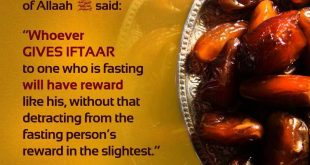In popular imagination, the word Timbuktu is a trip of three syllables to the ends of the earth. Today this West African city is a slumbering and decrepit citadel at the southern edge of the Sahara, in Mali, one of the poorest countries in the world.
 Yet it is here that some of the most astonishing developments in African intellectual history have been occurring. In recent years, thousands of medieval manuscripts that include poetry by women, legal reflections and innovative scientific treatises have come to light, reshaping ideas about African and Islamic civilizations. Yet even as this cache is being discovered, it is in danger of disappearing, as sand and other grit are abrading many of the aging texts, causing them to disintegrate.
Yet it is here that some of the most astonishing developments in African intellectual history have been occurring. In recent years, thousands of medieval manuscripts that include poetry by women, legal reflections and innovative scientific treatises have come to light, reshaping ideas about African and Islamic civilizations. Yet even as this cache is being discovered, it is in danger of disappearing, as sand and other grit are abrading many of the aging texts, causing them to disintegrate.
''The manuscripts reveal that black Africa had literacy and intellectualism — thus going beyond the mere notion of Africa as a continent of 'song and dance,' '' John O. Hunwick, a scholar who has uncovered some of the writings, said in a recent interview.
Although this rich intellectual heritage is familiar to numerous Africans, many Westerners still believe that Africa had only an oral, nonliterate culture. Comments like those made by the British historian Hugh Trevor-Roper in 1963 still resonate: ''Perhaps in the future, there will be some African history to teach. But at present there is none. There is only the history of Europeans in Africa. The rest is darkness
In reality, Timbuktu was once a haven of high literacy. These manuscripts, some dating to the 14th century and written mostly in Arabic, show that medieval Timbuktu was a religious and cultural hub as well as a commercial crossroads on the trans-Saharan caravan route. Situated at the strategic point where the Sahara touches on the River Niger, it was the gateway for African goods bound for the merchants of the Mediterranean, the courts of Europe and the larger Islamic world.
When the Renaissance was barely stirring in Europe, Timbuktu was already the center of a prolific written tradition. By the end of the 15th century, Timbuktu's 50,000 residents thrived on the commerce of gold, salt and slaves, and hundreds of students and scholars convened at the city's Sankoré mosque. There were countless Koranic schools and as many as 80 large private libraries. Wandering scholars were drawn to Timbuktu's manuscripts all the way from North Africa, Arabia and even Persia.
 Sri lanka Muslims Web Portal Diversity and Inclusiveness
Sri lanka Muslims Web Portal Diversity and Inclusiveness







